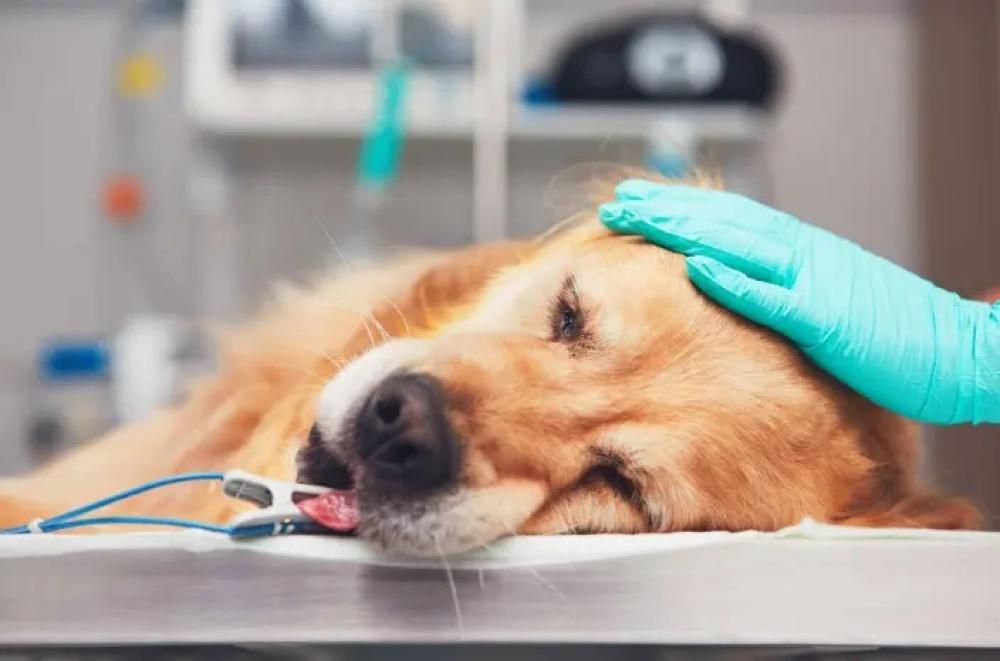Symptoms of dog poisoning and how to deal with it effectively
Dog poisoning can be dangerous and life-threatening to both animals and humans. Poisoning occurs when a dog is exposed to toxic substances that affect its body in different ways. Poisoning may be the result of eating toxic food, exposure to toxic chemicals, pesticides, inappropriate medications, and other factors.
To recognize the symptoms of dog poisoning and how to deal with it effectively, we must be aware of the early signs of poisoning and act quickly to save the dog's life.
Symptoms of dog food poisoning:
The symptoms of dog food poisoning are one of the most important indicators that dog owners should be aware of. These symptoms occur when a dog eats contaminated or spoiled food. Examples of common symptoms of dog food poisoning include frequent vomiting, diarrhea, fatigue, severe loss of appetite, and general weakness.
Dog owners should be careful about storing and ensuring the safety of their dog's food. It is recommended to check the food before giving it to the dog and throw away any food that shows signs of spoilage or contamination.
It is also important to avoid feeding dogs foods that may be toxic to them, such as chocolate, grapes, and onions. It is also recommended to give dogs approved healthy food and buy it from reliable sources.
Here are some preventive measures to avoid food poisoning in dogs:
- Store dog food in tightly sealed containers in a cool, dry place.
- Check the expiration date of the food and do not give your dog any expired food.
- Avoid giving your dog food purchased from unofficial or unknown sources.
- Avoid changing the type of dog food suddenly, and gradually to avoid digestive problems.
- Purchase dog food from trusted companies and check its safety and quality.
How to deal with dog poisoning:
When a dog is poisoned, we must act quickly to save its life. There are some steps that must be taken to deal with cases of dog poisoning effectively:
- Contact your veterinarian immediately: Contact your veterinarian immediately for advice and guidance. Your veterinarian can provide the correct guidelines for dealing with dog poisoning and providing the necessary treatment.
- Remove your dog from the source of the toxic substances: If it is safe to do so, remove your dog from the source of the toxic substances that caused the poisoning. This helps to reduce the dog’s exposure to further harm.
- Monitor and record signs of poisoning: Signs of poisoning should be monitored and recorded to aid in prompt diagnosis and appropriate treatment. This information can help your veterinarian make the right treatment decisions.
- Do not administer any treatment without consulting your veterinarian: Do not administer any treatment without consulting your veterinarian. Incorrect treatment can worsen your dog’s condition and lead to serious complications.
- Provide comfort and avoid stress: Provide comfort and avoid unnecessary stress to your poisoned dog. Keep your dog in a quiet, comfortable place and avoid any distractions.
- Maintain your dog’s breathing: Make sure your dog is lying horizontally and breathing normally. Breathing disturbances can be a sign of poor health and your dog may need immediate medical attention.
- Providing fluids: In the event of poisoning, fluids should be provided to the dog if he can drink them normally. Fluids can help replenish the body and maintain hydrolytic balance. Giving the dog first aid: The dog should be given first aid as directed by the veterinarian. First aid may include procedures such as artificial respiration and administering appropriate medications.
Once these initial steps have been taken, dog owners should monitor their dog's condition and follow their veterinarian's instructions. Remember, early and appropriate treatment of dog poisoning can be crucial in saving your dog's life and maintaining its health.
Conclusion:
Dog poisoning can be dangerous and pose a threat to the health and life of both animals and humans. Dog owners should be aware of the symptoms of poisoning and how to deal with it properly. Symptoms of food poisoning in dogs can include vomiting, diarrhea, fatigue, and loss of appetite.
Symptoms of chemical poisoning in dogs can include difficulty breathing, vomiting, and diarrhea. Symptoms of human drug poisoning in dogs can include vomiting, diarrhea, fatigue, and confusion. Finally, dog owners should deal with dog poisoning as quickly as possible, contact a veterinarian, remove the source of the poisoning, and provide appropriate care for the dog.
It is important to take preventive measures to avoid dog poisoning. Dog owners should store food properly and avoid leaving dogs in places with toxic substances.
People should also avoid giving dogs human medications without consulting a veterinarian. In the event of poisoning, contact a veterinarian immediately and follow their instructions to provide the necessary treatment and save the dog's life.
In short, proper handling of dog poisoning includes recognizing the early symptoms of poisoning, contacting a veterinarian, removing the source of the poisoning, and providing appropriate care and treatment.
Dog owners should also take precautions to avoid poisoning their dogs and keep them safe and healthy. Therefore, everyone should be aware of these symptoms and trends to act correctly in case of any poisoning cases.
We, the seventh bird, suggest a clinic for you pet.code.clini: To get the best and best treatment, you can get free medical consultation through the WhatsApp number 0544789504

